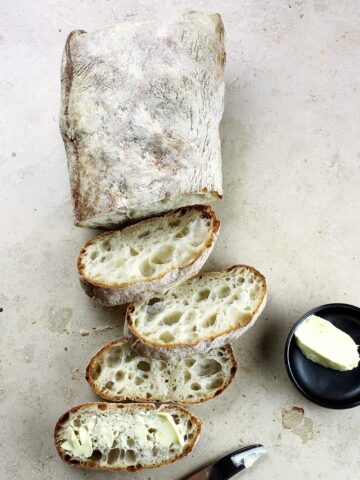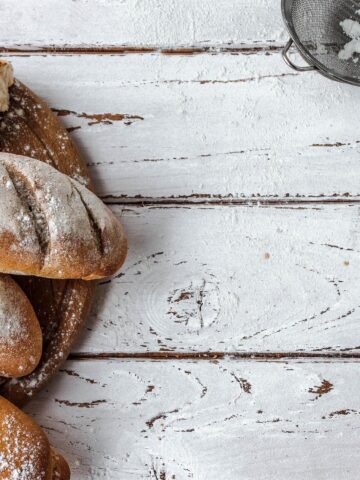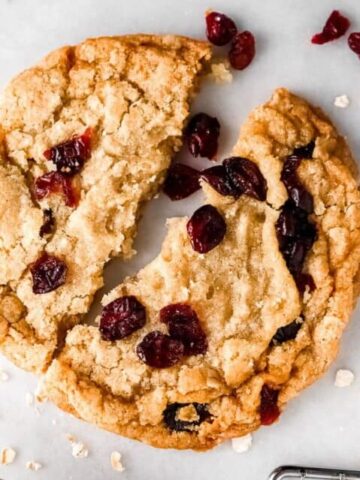Celebrating special moments with a glass of champagne is a time-honored tradition. However, for those with celiac disease or gluten sensitivity, the question of whether champagne is gluten-free is crucial. This guide delves into the sparkling world of gluten-free champagne, ensuring that your celebrations remain joyous and worry-free.
Tried this recipe? Please leave a star ⭐️⭐️⭐️⭐️⭐️ rating below and/or a review in the comments section down the page. You can also stay in touch with me through social media by following me on Instagram and Pinterest.

Understanding Gluten in Beverages
Gluten, a protein found in wheat, rye, barley, and their hybrids, can pose a significant health risk for individuals with celiac disease or gluten intolerance. While most alcoholic beverages undergo a fermentation process that generally removes gluten to below 20 ppm (parts per million), understanding which champagnes are truly gluten-free is essential for those seeking to maintain a gluten-free diet. It's crucial to recognize the variability in sensitivity among individuals with celiac disease and gluten intolerance. Not all react the same to trace amounts of gluten, making the distinction between gluten-free and gluten-removed products significant. Champagne, traditionally made from grapes, is naturally gluten-free, aligning with those seeking to avoid gluten. However, the broader spectrum of alcoholic beverages, including those labeled as gluten-removed, might not be suitable for everyone, emphasizing the importance of informed choices in maintaining a gluten-free diet.
Looking for more gluten-free information? Read about the role of xanthan gum in baking HERE.
What Does Gluten-Free Champagne Mean?
A champagne labeled gluten-free means it contains less than 20 ppm of gluten, adhering to FDA standards. Fortunately, traditional champagne, made from grapes, sugar, and yeast, naturally fits this criterion, barring any cross-contamination or additional flavorings. To further clarify, a gluten-free champagne label not only meets FDA standards but also provides assurance to those with gluten sensitivities or celiac disease that they can enjoy their champagne without worry. This label guarantees that every effort has been made to prevent cross-contamination and to avoid the addition of any ingredients that could introduce gluten into the traditionally gluten-free blend of grapes, sugar, and yeast.
Which Brands of Champagne Are Gluten-Free?
Most champagne brands are inherently gluten-free, as their production process and ingredients do not involve gluten grains. Some of the top gluten-free champagne brands that have been recognized for their commitment to purity and quality include:
- Dom Perignon
- Pol Roger Brut
- G.H.Mumm Grand Cordon
- Krug Grande Cuvée
- Nicolas Feuillatte Brut
Additionally, sparkling wines like Moscato, Sauvignon Blanc, Zinfandel, Riesling, Chardonnay, and Pinot Grigio are safe choices for those on a gluten-free diet.
Ensuring Champagne's Gluten-Free Quality
From Vineyard to Celebration: In exploring gluten-free champagne options, it's fascinating to note how the winemaking process, particularly for champagnes from the renowned Champagne region, inherently aligns with gluten-free standards. The use of oak barrels and natural yeast fermentation, along with careful selection of fining agents, ensures the final product—be it a bottle of white wine, red wine, or the exquisite pinot noir—maintains its gluten-free integrity. Celebrated brands like Moët & Chandon and Veuve Clicquot exemplify this commitment, offering gluten-free labels that assure consumers of their safety. In the United States, where dietary needs around non-celiac gluten sensitivity are increasingly recognized, such wine options are a boon. From wine coolers to hard cider, and distilled spirits, the choice for gluten-free alcoholic drinks is broad, catering to all tastes and occasions.

Selecting the Perfect Gluten-Free Champagne and Wine
Navigating through gluten-free wine and champagne options means understanding the nuances behind labels and ingredients. Gluten-free wines, including champagne, focus on the purity of grape juice, avoiding gluten ingredients like barley malt that could introduce gluten proteins. The distillation process for spirits, unlike fermentation for wine, typically removes gluten to safe levels. However, wine doesn't undergo distillation, making the absence of gluten-containing ingredients crucial for safety. Brands carrying a gluten-free label adhere to strict standards, ensuring their products contain less than 20 ppm of gluten, making them suitable for those with celiac disease or gluten sensitivities.
Ensuring Safety in Every Sip
To ensure a joyful celebration for everyone, especially those sensitive to gluten, understanding the intricacies of wine production is crucial. Wine producers take meticulous care to avoid gluten cross-contamination, particularly during the fining process and when selecting wine barrels, which can harbor glutenous materials from past uses. Special occasions demand a bottle of wine that's both exquisite and safe; thus, distilled alcohol often becomes the choice for free drinkers, due to its rigorous distillation process eliminating gluten traces, ensuring the wine can be enjoyed without fear of allergic reactions.
Does Champagne Yeast Have Gluten?
The yeast used in the fermentation of champagne is gluten-free. Unlike bread yeast, champagne yeast (Saccharomyces cerevisiae) is specific to alcohol production and does not contribute to the gluten content of the final product.
Exploring Gluten-Free Sparkling Wine Alternatives
For those looking to broaden their horizons beyond traditional champagne, Prosecco offers a delightful alternative. Originating from the Friuli Venezia Giulia region of Italy, Prosecco is praised for its fruity and bright profile, making it an excellent choice for gluten-sensitive individuals.
Can Celiacs Drink Alcohol?
Yes, celiacs can enjoy alcohol, provided it's from gluten-free sources. While fermented beverages made from gluten-containing grains should be avoided, wines, certain ciders, and spirits distilled from gluten-free ingredients are generally safe options.

Celebrating with Confidence
Gluten-Free Options for Every Occasion: For those seeking gluten-free options, the world of wine and spirits offers a wealth of choices, from champagne to liquor. Champagne gluten-free options are readily available from popular brands and specialized free wine brands, ensuring that every celebration, even those marking a rare occasion, can be enjoyed without concern. These products avoid the use of wheat gluten in their production processes, ensuring the amount of gluten remains negligible. Champagne producers and makers of free alcoholic beverages prioritize the use of gluten-free grains, allowing everyone to toast to health and happiness without hesitation.
The Art and Science Behind Gluten-Free Champagne Production
Delving into the art and science behind crafting gluten-free champagne reveals a process steeped in tradition yet modernized by technology. Champagne producers employ rigorous standards from the vineyard to the bottle. The use of oak barrels, selected for their purity and historical significance in winemaking, plays a crucial role. However, it's the commitment to using gluten-free ingredients, from the grape juice to the yeast, that stands paramount. Advanced testing methods ensure no cross-contamination, allowing champagne enthusiasts with celiac disease or gluten sensitivities to indulge without concern.
The Importance of Gluten-Free Certification and Labeling
Gluten-free certification and labeling serve as beacons of trust for consumers navigating their choices. This certification signifies that a champagne has undergone stringent testing to meet recognized gluten-free standards, typically less than 20 ppm of gluten. Such labels demystify shopping for those with dietary restrictions, offering peace of mind and the freedom to celebrate without health risks. As awareness grows, more brands are pursuing these certifications, expanding the range of trusted gluten-free options available on the market.
Pairing Food and Champagne
Pairing gluten-free champagne with the right dishes can elevate any celebration. For brut champagnes, consider light appetizers like gluten-free bruschetta or shrimp cocktail. Rosé champagnes pair delightfully with gluten-free charcuterie or smoked salmon, enhancing the flavors of both the drink and the food. For sweeter champagnes, gluten-free desserts like fruit tarts or macarons make for a perfect match. These pairings ensure that every aspect of your celebration can be enjoyed freely and safely by everyone.
Navigating the Gluten-Free Alcoholic Beverage Market
Beyond champagne, the gluten-free alcoholic beverage market offers an array of choices, from wine to distilled spirits. Gluten-free labeling helps identify safe options, but understanding the production process is key. Distilled spirits, even those derived from gluten-containing grains, are considered gluten-free due to the distillation process removing gluten proteins. However, always check for certifications or contact producers directly if in doubt. This knowledge empowers individuals with celiac disease or gluten sensitivity to navigate the vast options confidently, ensuring their celebrations are both joyous and safe.
Exploring Gluten-Free Beers and Wines
A Guide for the Discerning Drinker: The good news for enthusiasts seeking gluten-free options extends into the realm of beers and wines, where the manufacturing process is crucial. Gluten-removed beers offer an alternative by reducing grain protein to trace amounts of gluten, ensuring they fall below the legal limit for gluten-free products. Similarly, wines, especially those labeled as gluten-free, undergo rigorous testing to achieve a high free confidence score, reassuring consumers of their safety. Whether it's your favorite wine or a beer for a casual evening, such wines and beers allow everyone to indulge without compromise.
With the rise of gluten-free awareness and labeling, enjoying a glass of champagne or sparkling wine doesn't have to be a concern for those with celiac disease or gluten sensitivity. By choosing brands known for their gluten-free processing and paying attention to labeling, you can confidently raise your glass at any celebration.




